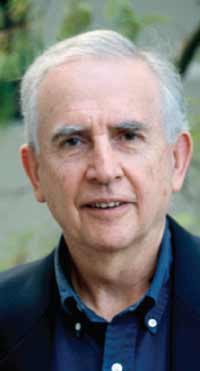 I’ve been to a couple of Australian workshops on generations based almost entirely on Hugh Mackay’s book, “Generations: Baby Boomers, their Parents & their Children”. The biggest reason for this is the Australian base for Hugh’s research. This is not just an Australian take on American research. It’s the result of Hugh’s qualitative research over 40 years, conducted in conversation with small groups in living rooms around Australia.
I’ve been to a couple of Australian workshops on generations based almost entirely on Hugh Mackay’s book, “Generations: Baby Boomers, their Parents & their Children”. The biggest reason for this is the Australian base for Hugh’s research. This is not just an Australian take on American research. It’s the result of Hugh’s qualitative research over 40 years, conducted in conversation with small groups in living rooms around Australia.
Hugh Mackay was born in 1938, which makes him just a bit older than the Boomers he’s aiming at with his book. Hugh is a psychologist, social researcher and writer. Hugh has written several novels and books and is a weekly newspaper columnist – for the Sydney Morning Herald, Sun Herald and more recently for The Age.
For the past 27 years Hugh has been publishing his findings in the quarterly research series, The Mackay Report. Since September 2003 the Mackay Report has been brought out by Ipsos Australia, an international marketing research company. To get onto the mailing list you’re looking at between $4800 AU for charitable organisations and $9700 for regular subscriptions. Of particular interest this year (2005) is the report on ‘Whither the Baby Boomers’, due out in September. Hugh will be presenting the report in Melbourne on September 27 and Sydney on October 6.
Here’s the appetiser for the September 2005 Mackay Report:
In 2005, the oldest baby boomers will be turning 59 and the youngest will be turning 44. These are the 4.3 million Australians who have cut a swathe through Australian social, cultural, political and economic life. They have been the social pioneers, the iconoclasts, the revolutionaries, and they have paid a high emotional price, being our most highly-divorced generation ever, and the generation that absorbed most of the impact of the upheavals in the Australian economy over the past 15 years. How are they travelling now? How do leading-edge boomers feel about the looming prospect of turning 60? Where do they stand on the r-word?What are their attitudes to saving, investment, credit? How are their spending patterns likely to change – if at all? This is the generation that once said “we’re not here for a long time; we’re here for a good time”Â… but most of them are still here, so are they having a good time? Are their values changing as they age? How do they feel about the progress being made by their children? What are their dreams for the future?
More on the book itself next post…
